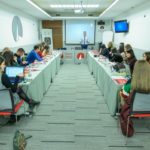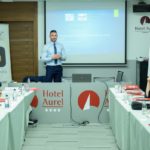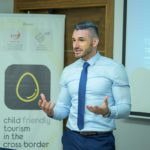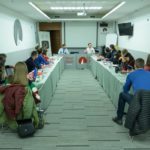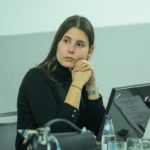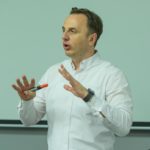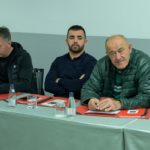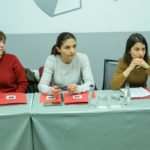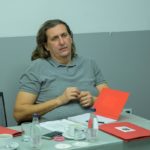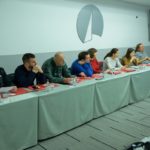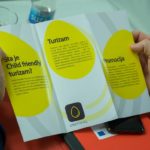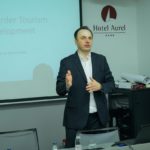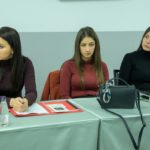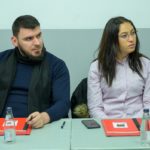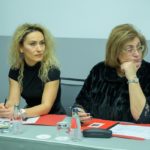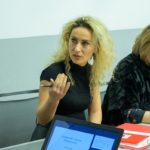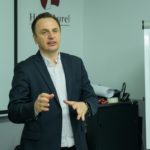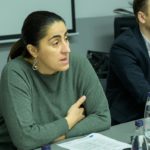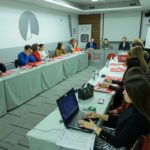The Association for Democratic Prosperity – Zid (ADP-Zid) is implementing the project “Child friendly tourism in the cross-border area” through the cross-border program Montenegro-Albania in partnership with the Center “Children Today”(QFS) from Albania. The project started in May 2018, and will be implemented by May 2020. The third regional workshop was held in the period 27-29. January 2020, at the Hotel Aurel, Podgorica, Montenegro. On the third regional workshop there were 16 participants from different organizations, including touristic agencies, directors of ethno/eco, hotels villages in Montenegro, National park, as well as representatives of municipality of Lezhe and local resorts in Albania.
On the first day, Sanda Rakočević, Director of ADP-Zid addressed the participants of the workshop, presented the project’s goals and introduces the lecturers – Professor Almir Peštek, from University Sarajevo, and Professor Goran Ćorluka from University Split.
The first session was held by Professor Almir Peštek, PhD, who started the lecture by introducing himself. Then, participants were invited to present themselves and to talk about their expectations of the workshop. That was a nice ice-breaker. This was followed by invitation to participants to type live.voxvote.com and answer following questions – How are you today? How would you define cross-border cooperation? What is needed for successful cross-border cooperation? What is child friendly tourism? Participants answered anonymously, and professor managed to receive general opinion. During the first session participants had the opportunity to hear about trends in tourisms. Professor mentioned increasingly present habit of families to travel more often, but to stay less. He also emphasized the importance of making long – term goals for business, and not just to focus on short – term projects, to work on keeping existing customers.
During the second session Professor Peštek asked participants about their vision? How do they see cooperation? What do they want to achieve?
Professor was talking about the importance of storytelling in the creating of the brand, how to make an offer that is catchy, appealing, and noticeable, how to focus on selling the destination as whole and not just a product. The participants could hear why it is important that all three sectors are connected and work together in promoting the touristic offer and placing it on bigger market. The last session of Professor Peštek was focused on explaining matrix for new integrated and cross-border products and development of marketing strategy for existing and new tourist offers.
Professor Goran Ćorluka’s presentations on tourism demand determinants and trends, ended the first day. The behavior of tourism demand is stimulated and motivated by numerous economic, sociological, psychological, demographic and other factors. In order to create a touristic offer it is needed data, analyzing of the information, marketing, to think and vision what may happen in the future? The creators of touristic offer have to adapt the product to the costumers. Push and pull destination factors are playing an important role.
The second day began with Professor Ćorluka’s session. During the first part he was introducing tourism marketing and the 7P concept, and the second part of the day was devoted on this concept focused around child friendly tourism. The participants were presented with examples of existing child friendly offers in the world and continent, the main goal of tourist propaganda, the value of word of mouth propaganda, why it is important to give to tourist more than they expect. Professor also showed the successful type of commercial and allowed the participant to discuss their opinion of why it was good, and what key components that makes some commercial good are.
In the end of the second day of the workshop, participants were given an evaluation questioner. Based on it, participant were extremely satisfied with lecturers, topics, new information they have received during workshop, and possibility to apply it in their business. In conclusion they see child friendly tourism and offer as a way of improving the existing tourist offer and as something that has a strong potential for overall development of tourism.


